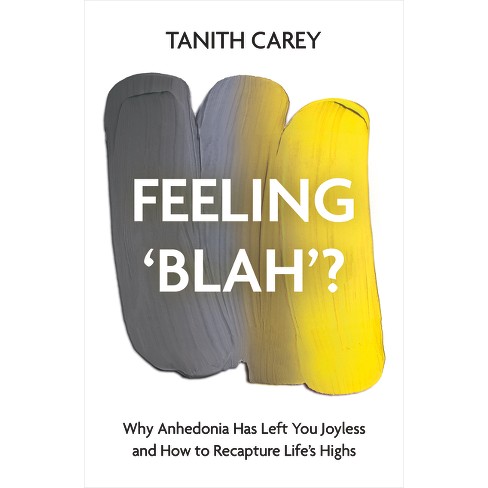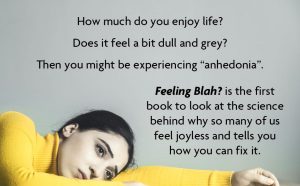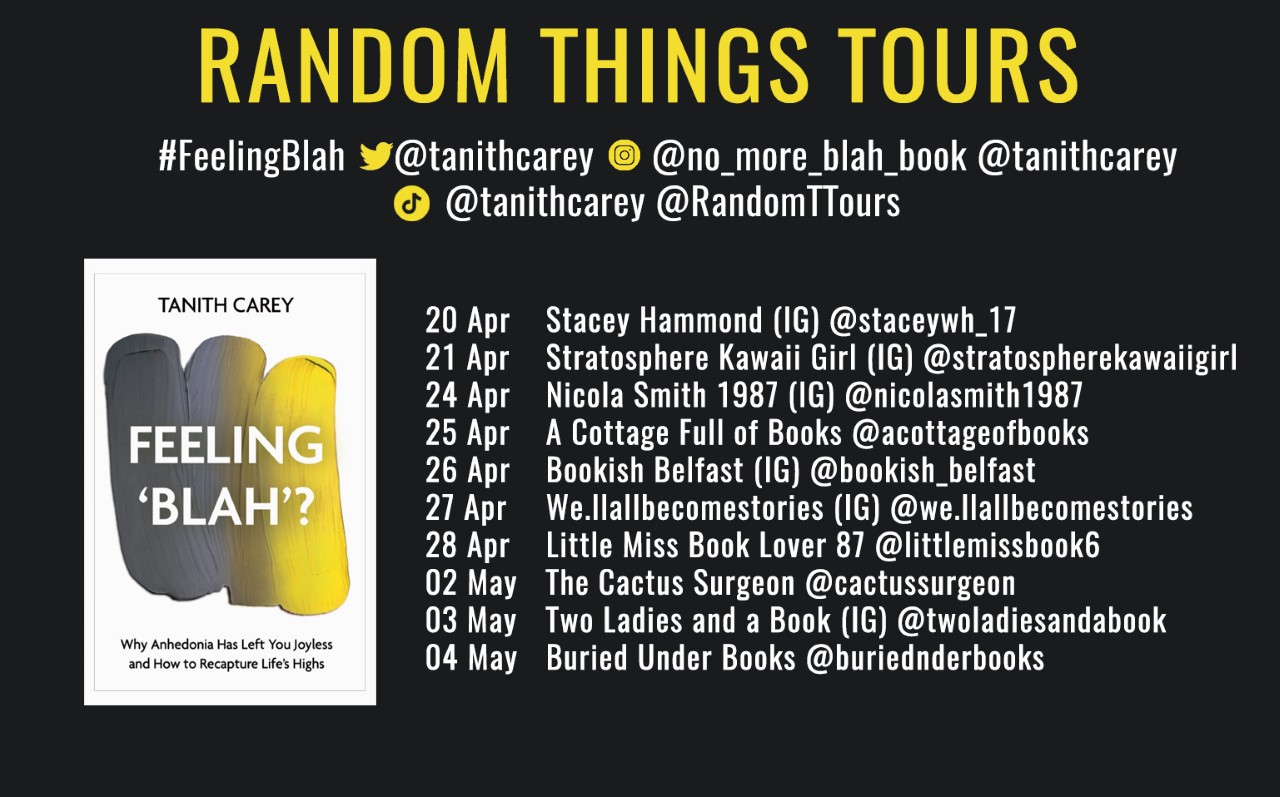
Do you feel happy? Sad? Or do you mostly just feel – blah.
Flat emotions may not be a sign that someone is experiencing depression, but it can be a precursor to it. After all, we might desire a life without sadness, fear and anger, but no one wants a life devoid of joy, excitement and delight. There’s plenty of advice available for tackling depression, but how do we identify and treat its less familiar sibling, anhedonia? Thoroughly researched and explained in accessible language, Tanith Carey’s ‘Blah’ has the answers we need.
What’s it about?
When Carey’s response to excellent news from her literary agent was…nothing at all…she wondered why she was failing to react to something she should have felt delighted by. She started researching and discovered there was a name for her lack of feelings: anhedonia, which is that blank, numb state you find yourself in when you’re too [insert adjective of your choice here – mine would be ‘tired’] to feel anything much at all. For many, it’s a temporary visitor, fogging our emotions when we’re exhausted or overwhelmed, but for some people, it’s an unwelcome guest that unpacks its bags and settles in for the duration.
The subtitle of this book – ‘Why Anhedonia Has Left You Joyless and How to Recapture Life’s Highs’ – is an accurate summary of the whole. In part one Carey explores the historical roots of anhedonia (e.g. how our caveman brains react to modern stresses); then in part two she considers more personal causes (e.g. changes in hormones) and how anhedonia can affect each of the five main senses; and finally, in part three, she suggests strategies to address the causes and the symptoms of this quiet thief of joy.
What’s it like?
Interesting. Informative. Invaluable for those in anhedonia’s foggy grip.
Carey thoroughly explores the causes of this blight, facilitating readers to try to identify when and why their mood flatlined, which will then help them to know how to tackle the condition. (Do they need to reduce the demands on their time and energy? Do they need medical assistance to restore flatlining hormones?) Subsequent advice has a very CBT (Cognitive Behavioural Therapy) feel to it, incorporating the idea that you can, to a certain degree, jolly yourself back into jolliness. I’m certain this is true, but wonder whether this will feel impossible to some readers, lost for a long time in the numbness of anhedonia.

Then again, as Carey points out, if you have the time to be reading her book, you obviously recognise that there may be a problem you want to tackle, and you likely have the leisure time / mental capacity to begin to tackle it. I think this could be really beneficial for people who have previously recognised that they are no longer ‘feeling’ life to the degree they used to, but weren’t motivated to address the problem, because it didn’t feel like a priority. After all, anhedonia is not misery – but that’s what makes it so insidious. If you felt miserable, you’d likely be motivated to make changes to stop that feeling!
Final thoughts
I found this a genuinely interesting read and particularly appreciated the ideas to inspire positive energy in the third section. Most of the ideas were good without being novel (e.g. singing is a powerful dopamine booster, especially if you sing with other people) but it’s useful to have them collated and the science behind them explained in clear language.
It’s also true that life is not simply about happiness, but about finding our place in the world and our purpose. Carey recognises this and gives this due weight, which is important as pursuing ‘happy moments’ without having a core sense of one’s purpose in life and one’s own value could easily sustain an overall sense of pointlessness that leads straight back to anhedonia or depression.
Highly recommended to anyone who feels that their life rarely or never brings them bursts of joy anymore – or anyone who is interested in how our brains work. Carey is clear: we all deserve to experience the full range of emotions and if you aren’t, then there are ways to restore this capacity.
‘Feeling ‘Blah’?’,
Tanith Carey,
2023, Welbeck Balance, hardback
Many thanks to the author, publisher and Anne Cater’s Random Things Tours for providing me with a copy of this book in exchange for an honest review and a spot on the blog tour.
Want to know more? Follow the tour:

1 Comment
Thanks for the blog tour support x